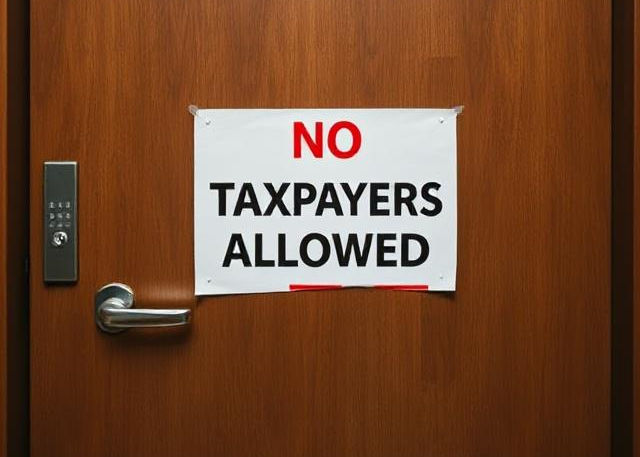Washington's Supreme Court hides the ball on state employee compensation offers
- Jason Mercier

- Jul 9, 2025
- 3 min read

In a shocking 8-1 ruling, the Washington State Supreme Court has given its official blessing to a secretive process that allows the offers and counteroffers leading to more than a billion dollars in taxpayer-funded compensation to remain secret until after the state budget is signed into law. By failing to uphold the clear intent of Washington’s robust public records law, expect more labor unrest, not less, as a result of this ruling.
For example, Washington state employees walked off the job last year to protest the compensation offers from then-Governor Inslee. According to KOMO News: “WFSE negotiators said they want to express their frustration with where the labor talks have gone. They called the wage offer proposed by the state … ‘disrespectful’ and are demanding livable pay rates.”
The problem is, except for a handful of people involved in the secret compensation talks, no one knew what the actual details were.
Since 2004, state negotiations with union executives about how much taxpayers compensate government employees have been secret, even though these talks with the governor’s office involve more than a billion dollars in public spending per biennium. Before 2004, compensation decisions were made transparently with public hearings. They were part of the normal legislative budget process. That’s as it should be.
In a 2024 video, WFSE leaders told public employees that they can’t share details of the pay talks until a tentative agreement has been reached, implying that they are being forbidden from doing so. Ashley Fueston, council vice president, said, “The way that our bargaining structure works here in the state of Washington, we aren’t allowed to share the details of what’s happening within bargaining.”
What Fueston didn’t say is that secrecy is something union leadership wants and has fought to maintain. For example, Section 39.13 of the WFSE 2023-25 contract says: "Bargaining sessions will be closed to the press and the public unless agreed otherwise by the chief spokespersons. No proposals will be placed on the parties’ web sites…. There will be no public disclosure or public discussion of the issues being negotiated until resolution or impasse is reached on all issues submitted for negotiations."
Keeping taxpayers and public employees in the dark allows union leadership to get away with saying things like a compensation offer is “disrespectful” without actually providing any details.
Unfortunately, this charade is likely to continue as a result of the state supreme court's ruling on June 26, which green-lights secrecy on the offers and counteroffers that lead to an agreement.
The lone dissenting voice to this tragic ruling was the new state Justice Salvador Mungia. He astutely noted:
“The people have the right to know what their government is doing. That value is the basis for the Public Records Act (PRA). The presumption is that the public is entitled to information their government holds. Withholding information is the exception, and this court’s responsibility is to construe any exemption under the PRA as narrowly as reasonably possible so that information is disclosed and not withheld.”
Government employee contract negotiations should be fully open to the public. At a minimum, all contract proposals and documents to be discussed should be made publicly available before and after the contract meetings, with a fiscal analysis showing the potential costs. This would better inform the public and state employees about promises and tradeoffs being proposed, so all sides could decide if the offers are in fact “disrespectful” or instead reflect fiscal realities.
This type of transparency also makes clear whether one side or the other is being unreasonable in its demands, and quickly reveals whether anyone is acting in bad faith.
Now that the state supreme court has issued this pro-secrecy ruling, reforms to the collective bargaining process in Washington are essential. For example, Idaho law prevents cities and unions from negotiating any contracts in secret. Democrats and Republicans passed the law unanimously and it was signed into law by former Governor Butch Otter in 2015.
Ideally, contract negotiations should be fully open to the public. At a minimum, government officials should adopt an openness process like the one used by the City of Costa Mesa, California, to keep the public informed. The city’s policy is called Civic Openness in Negotiations, or COIN.
Under COIN, all contract proposals and documents to be discussed in closed-door negotiations are made publicly available before and after the meetings, with fiscal analysis showing the potential costs. While not full-fledged open meetings, access to all of the documents better informs the public about promises and tradeoffs being proposed with their tax dollars before an agreement is reached.
It's incredibly disappointing to see the Washington State Supreme Court rubber-stamp the current anti-transparent government employee compensation process being used in the Evergreen State. State employees and taxpayers deserve much better.







Comments